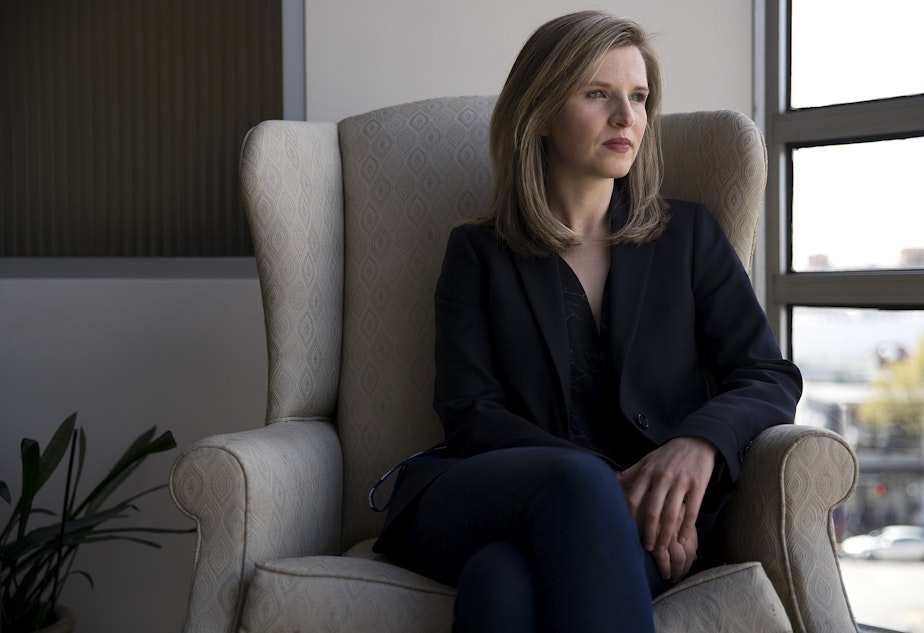Tara Westover, author of 'Educated, A Memoir' on being raised by religious radicals

Your views on politics, your understanding of history, your personal identity: You feel pretty solid about them, right? But what if you didn't?
Tara Westover grew up in Idaho in a family that practiced a radical form of Mormonism. She never went to school, never saw a doctor, and studied her way into Brigham Young University at 17. This led to a career in academia that included Trinity College and Harvard, culminating in a PhD in history.
As she was learning the fundamentals of history, she was also putting together the building blocks of her own past. In her new memoir, "Educated," she explores this and other questions. Is the first self you have the only one you get? Or can we change?
Why do you call your father a “charismatic radical?”
It’s because of these beliefs that he had. I was raised as one of seven children on a beautiful mountain in Idaho and he was opposed to a lot of the institutions that most people take for granted. Doctors and hospitals were some of them. We were never allowed to go to the doctor. Not when we were ill and not when we were injured. And we were injured a lot. My dad owned a junkyard.
I was never allowed to go to school – that was another thing that my dad was opposed to. He was opposed to anything to do with the school and the government (that’s why I don't have a birth certificate).
You go out of your way to say that right at the top to say your book, your experience, is not about Mormonism or religion. Why do set up readers like that?
It doesn't seem fair to say that it's about Mormonism. I grew up in a Mormon town. Everybody on my town went to school and had birth certificates. Everybody else went to the doctor. To say that this is a representation of a Mormon family, to me, seems over-simplistic and just factually wrong. He had these extreme political paranoia elements, and then sometimes it was justified in terms of religion where he would say, ‘God wants us to be at home; God wants us to stay home and be home schooled.’ He said that people who send their kids to school, or people who go to the doctor, are committing some kind of spiritual offense.
So it was sometimes justified in religious terms, but I just think my dad was extreme about everything in his life. And so of course he was also extreme about religion. But I don't necessarily think that the religion caused the extremism.
Do you think all families are cults in a certain sense?
I think every family culture is strong. What I went through, in terms of the isolation and only having my father's perspective, is an extreme version of what I think everybody goes through – which is to say we're all born in families, and that culture seems normal to us.
My dad's ideas were completely my ideas. Every word that he said, I believed. It wasn't until I got older that I began to have access to different perspectives, different ways of thinking.
I think everyone goes through some version of that.
Do you recommend that everyone let go of their family, at least temporarily?
No, I think it's a complicated question. I think part of what it means to grow up is learning how to define yourself both in connection to and in counter-distinction to your parents.
I would end up being disowned by my family because I would confront them about a violent brother that I had, and they would decide that I was lying. And my father, because he is so extreme, would begin to tell people that I was possessed. I would have done anything I could to keep my relationship with my family together except for what they were asking me to do – which is essentially deny my own memories, my own ideas about the past and about the present.
But I think I think that's such a personal decision, the relationships that people work out with their families and their identity. How do you allow yourself to change and yet try to hold on to relationships that came out of an earlier version of yourself?
That’s the negotiation. That's something everyone has to decide for themselves.
This interview transcript was edited for length and clarity. It was produced for the web by Brie Ripley.

